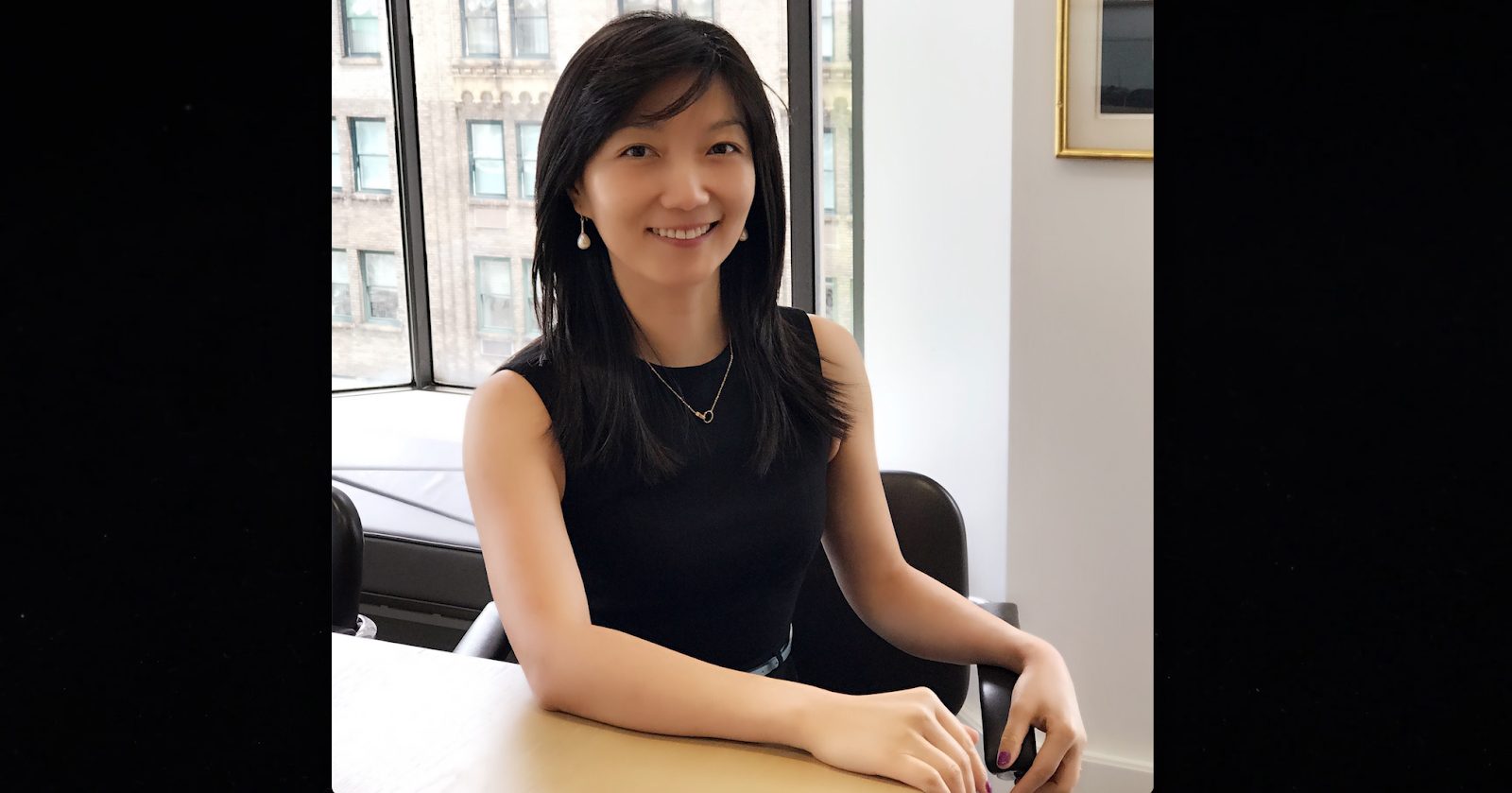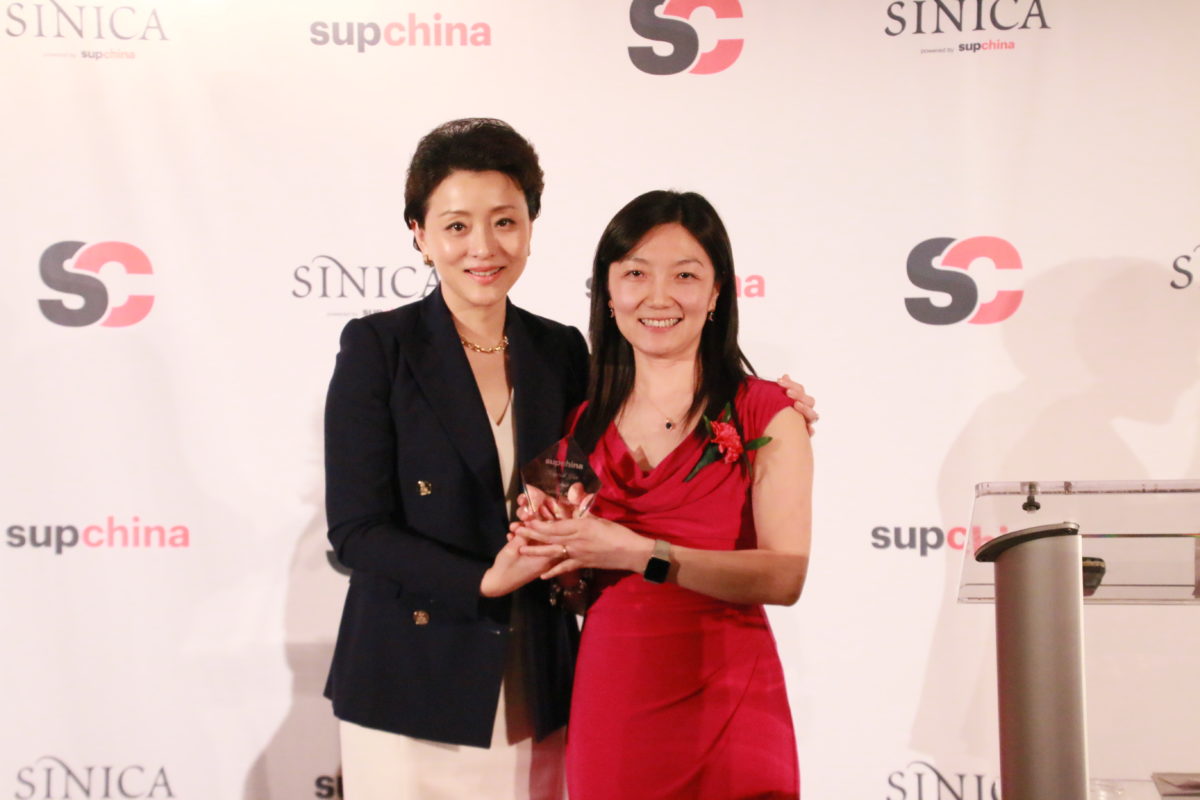Q&A: Ingrid Yin on China’s healthcare industry and new medical technologies

Ingrid Yin is the co-founder and portfolio manager of MayTech Global Investments, a New York–based firm that specializes in managing global growth portfolios. Yin started her career as a research scientist and then made a leap to the finance industry, where she worked as an analyst and honed her focus to identifying investment opportunities in Asia and in healthcare. In 2017, with her extensive global investing experience, Yin launched MayTech with her business partner, Nels Wangensteen. At the 2018 The China Project Women’s Conference, she was chosen as the U.S. recipient of the Female Rising Stars Award.
In this interview, Yin talks about how she started the company and what she makes of the growing investment opportunities in China’s healthcare sector.
The China Project: Tell us about MayTech. What’s its philosophy? What are you doing exactly?
Yin: MayTech Global Investments, LLC, launched in January 2017, is an SEC Registered Investment Advisor. The founding partners own 100 percent of the firm, including a 45 percent women-owned stake. The investment team, based in New York City, has been investing globally on average for more than 20 years. Our investment philosophy reflects our view of the world. We live in an exciting time where technological change is accelerating at a global level, creating billions of new consumers and disrupting traditional industries. This landscape is increasingly creating a “winners take all” business climate. MayTech seeks to identify these winners and help our clients invest in them.
The China Project: How does MayTech differentiate itself from other investment firms in the field? What’s special about its investment strategy?
Yin: MayTech differentiates itself from other investment firms in several different ways. First of all, we are very long-term focused, supported by our investors who share similar long-term views. This allows us to focus on companies with big upside potential to bring disruptive changes in the economy and change the world. Second, we believe the many technological changes that are happening now are exponential as opposed to linear and many investors haven’t recognized it. Third, we invest in the future, which is very different from many investment firms, which are index huggers. Because of these differentiations, this investment strategy has delivered really great long-term returns. The annualized net of fee return as of 3/31/2019 for the last 10 years was more than 18 percent.
The China Project: How did you come up with this business idea?
Yin: We decided to build MayTech because we firmly believe that focusing on deep research, big long-term trends, and clients’ needs are the most important things for an investment firm. We have significant research expertise in technology, healthcare, and emerging consumers sectors, where we see innovations will accelerate, therefore driving the growth of the global economy.
The China Project: What did you do before you co-founded MayTech?
Yin: I was trained as a research scientist. After I received a Ph.D. in biochemistry, I spent four years conducting biomedical research at Memorial Sloan Kettering Cancer Center. At Memorial Sloan Kettering, I realized my strong interest in business. After I obtained an M.B.A. from MIT Sloan, I focused on investment in healthcare and Asia. Most recently, I was a managing director at Oppenheimer, heading its China Equity Research, before I co-founded MayTech.

The China Project: What are some ideas you’re excited about in the healthcare space and why do you think these ideas are transformative?
Yin: We are excited about several areas in healthcare. 1. Robotic surgery. Whether they are applied in lung biopsies or knee replacements, robotic systems will make surgeries more efficient and less painful. 2. Next-generation medicine. The cost of human genome sequencing has dropped significantly, creating an ever-increasingly large body of genomic information. The deeper scientific understanding of human bodies will be the breeding ground of new biomedical innovations. 3. Telemedicine. The power of information technology has the potential to drastically change how healthcare is distributed. It will cut down healthcare costs and also bring high-quality care to more people in the world.
The China Project: China has an enormous healthcare market largely driven by its aging population and economic growth. Can you walk us through the industry’s current status and some future trends that investors should pay attention to?
Yin: We believe healthcare in China has huge potential for the two reasons you talked about. The industry is evolving very fast, as the country is quickly upgrading its quality of healthcare products and services. Compared with healthcare in the U.S., there is still a significant gap in terms of the availability and affordability of certain medical products and services. However, the industry is light-years ahead of where it was 10 years ago, supported by China’s economic growth and continued introduction of Western biomedical innovations. We think it’s important to pay attention to how value is created in China’s healthcare system. Most of the hospitals in China are still state run and out-of-pocket payment still represents a significant portion of the payer system. One important and clear trend is more healthcare companies in China that focus on innovations now, versus 10 years ago, when they focused on generic and copycat products.
The China Project: At the 2018 The China Project Women’s Conference, you were chosen as the U.S. recipient of the Female Rising Stars Award. How do you feel about the award?
Yin: I am grateful to The China Project and the judges for selecting me as the winner of the 2018 Female Rising Stars Award. I am extremely honored, and at the same time feel responsible for setting up a good example for career-oriented women. I work in the finance industry, which is pretty much male dominant. There is no fundamental reason that women couldn’t achieve what men have achieved in business. I thank Anla Cheng for creating this award and inspiring more women to work toward gender equality in business.





